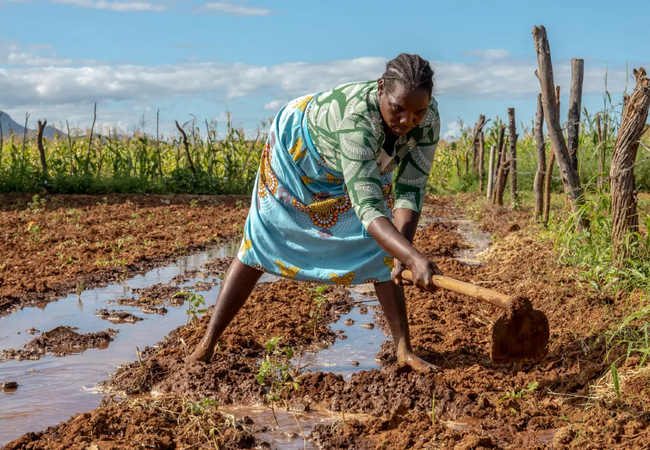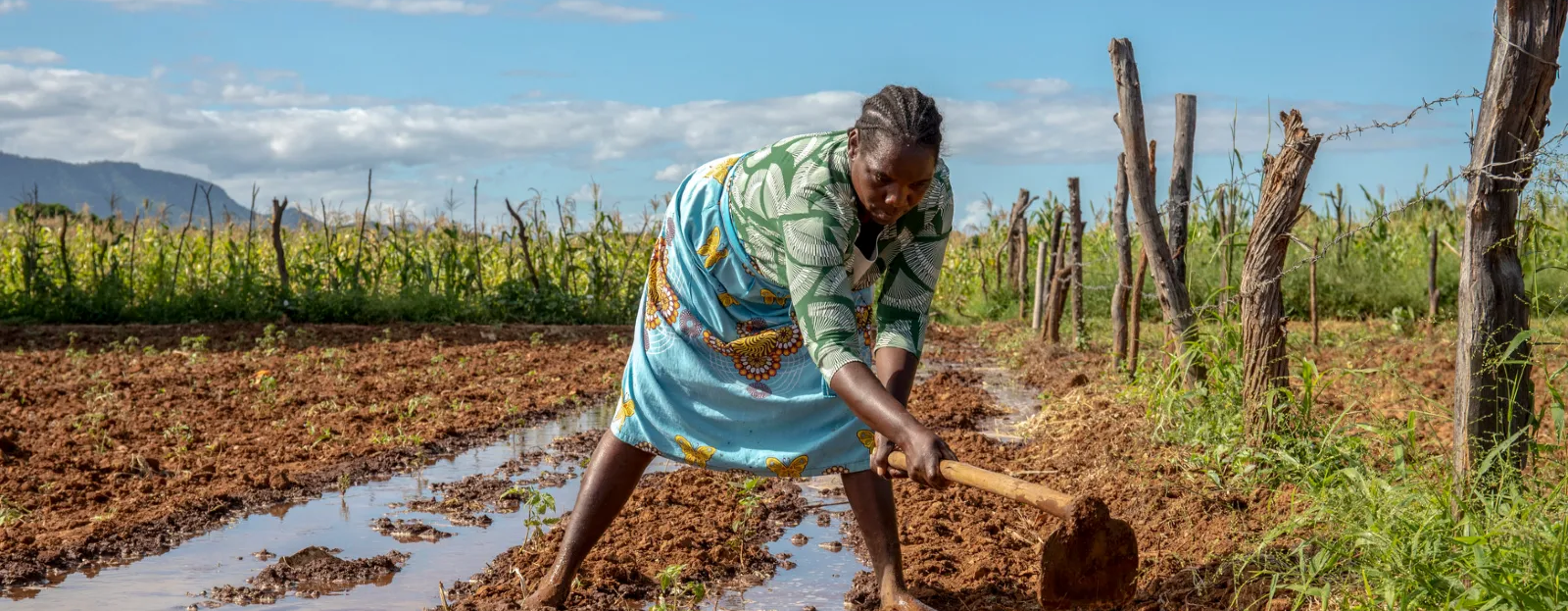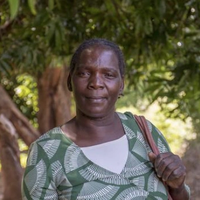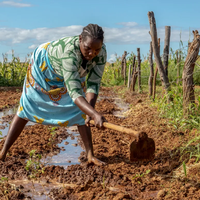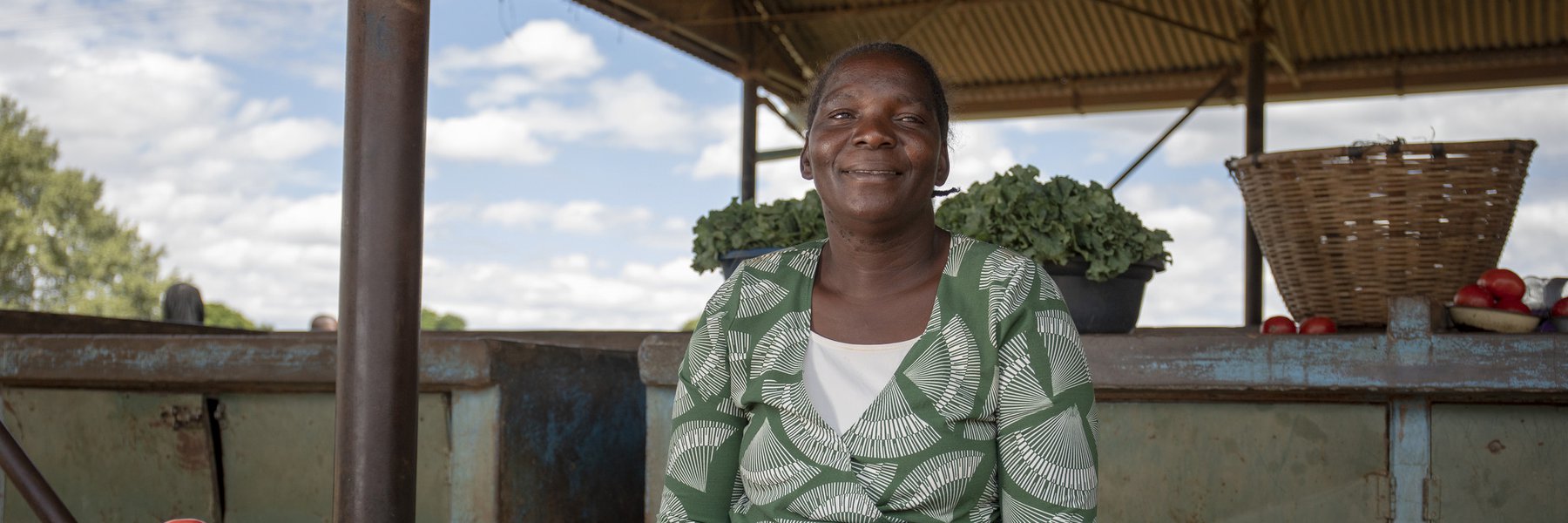A lot has changed since I started farming.”
Sarah has been farming in Zimbabwe for over 25 years
Farms fit for the future
When Sarah’s husband passed away she took over their farm. She’s battling climate change to build a more sustainable future for her community.
Farming is what I do for a living. I wake up every day and say that I am going to work so that I can send my children to school. What we eat at our house comes from this field. So, if it doesn’t rain properly, our lives are greatly affected because that’s our source of livelihood. While I work, I hope that the crops I plant grow well, so that my children can survive, go to school and also have something to eat.
There has been a change in the rainfall pattern over the last 25 years. Sometimes it rains when the season is about to come to an end. It’s affecting our harvest because we will be looking forward to planting seeds in October. Then when we expect it to rain, it doesn’t rain – in October and sometimes in November. So, what we have planted doesn’t grow well because the rain hasn’t come as expected.
Photo: Cynthia Matonhodze/Oxfam
Turning water into wellbeing
In 1934, the construction of a canal on the north bank of the Nyanyadzi river helped irrigate hundreds of acres of farmland. In 2000, tropical cyclone Eline damaged the canal, which became clogged with silt. This storm, together with the twin threats of frequent heavy rain and prolonged drought led to a significant drop in production for the farming families dependent on the scheme.
In 2014, Oxfam and its local partners started working with rural farming communities. to build resilience to these extremes in climate through improvements to irrigation infrastructure like this one on the Nyanyadzi river.
The water we use here comes from Nyanyadzi. Nyanyadzi river, that’s the one that helps us a lot. Because of Oxfam and DP who fixed the gabions to stop the silt which used to cover the canals. So it helped us because this year we didn't have a breakdown – we didn't have a shortage of water. When it used to rain all the canals would be covered flat, so you would sometimes spend a month and a half without water, but now it’s no longer like that. It has changed.
Dan Medhurst/Oxfam
Turning water into wellbeing
Climate change is putting increasing stress on the livelihoods of people living in the world’s drylands. Smallholder irrigation has long been seen as a means of improving food security in areas with unpredictable rainfall, and is now being promoted as part of climate change adaptation strategies.
With the right kind of support, hardworking smallholder farmers can achieve remarkable increases in production, realise great improvements to their lives and become much more resilient to weather extremes.
I am good farmer. If I get enough water, and I have my inputs, I really have a good farming season. Like the year we were given inputs by Command, I had a good farming season to the extent that I even took some to the GMB we also spent the whole year eating our sadza from the maize we had harvested. We were given fertilisers, seeds and diesel to plough. As we speak my husband passed away 15 years ago. I am the one who manages everything. As a woman, I am way better than some men.
1014 members of Sarah's community in Zimbabwe have been trained in gabion basket making, building gulley plugs and silt traps – infrastructure used to manage water flow.
Oxfam has helped more than 11,000,000 people with advocacy and aid, including water, sanitation, and public health promotion.
We have transforming pumps in Yemen so they can use solar power – ensuring they are sustainable. Now, over 12,000 people have access to clean, safe water.
